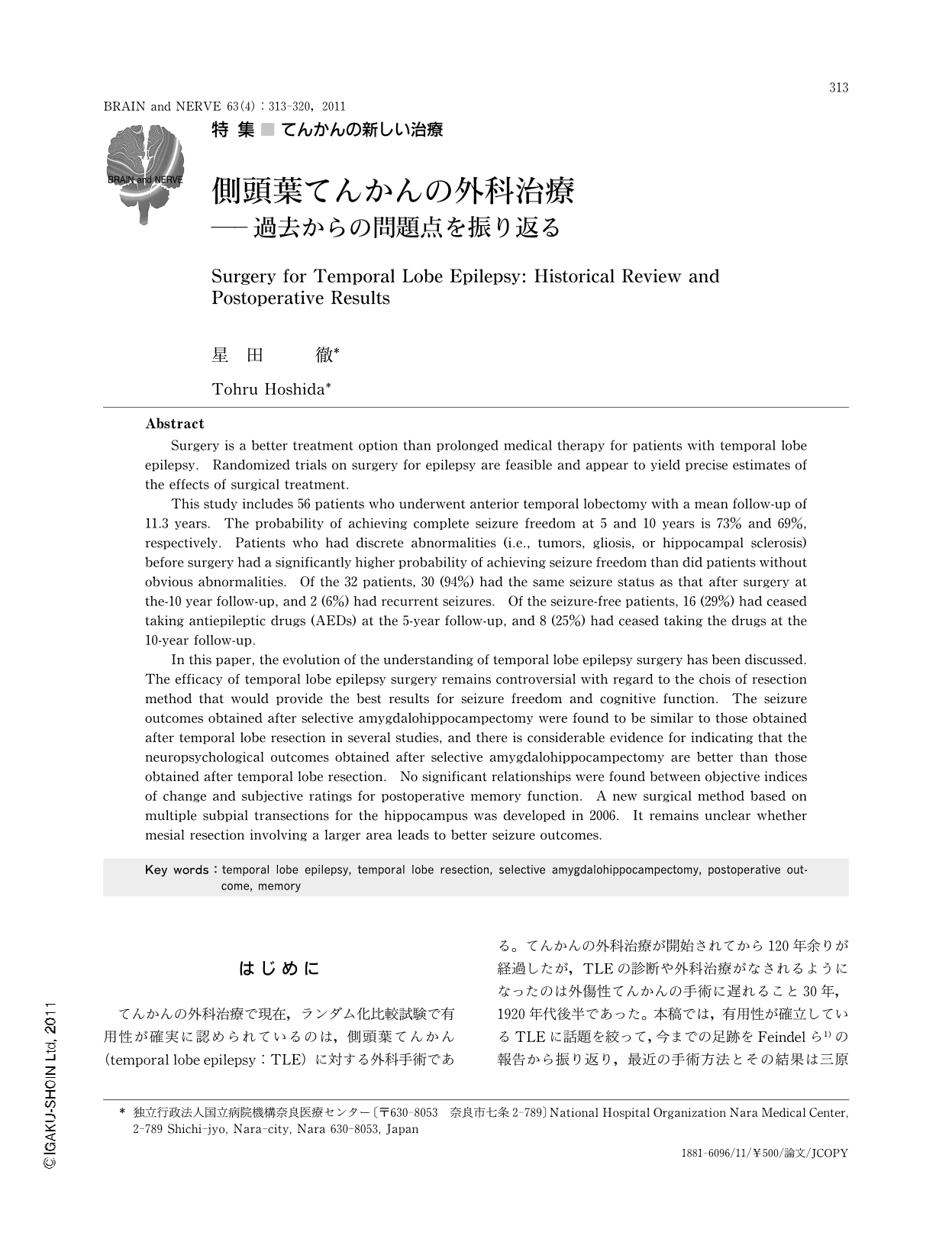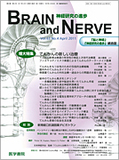Japanese
English
- 有料閲覧
- Abstract 文献概要
- 1ページ目 Look Inside
- 参考文献 Reference
はじめに
てんかんの外科治療で現在,ランダム化比較試験で有用性が確実に認められているのは,側頭葉てんかん(temporal lobe epilepsy:TLE)に対する外科手術である。てんかんの外科治療が開始されてから120年余りが経過したが,TLEの診断や外科治療がなされるようになったのは外傷性てんかんの手術に遅れること30年,1920年代後半であった。本稿では,有用性が確立しているTLEに話題を絞って,今までの足跡をFeindelら1)の報告から振り返り,最近の手術方法とその結果は三原ら2),Schramm3)の報告を中心に,そして当院での長期手術結果を踏まえて,今後のTLE外科手術に向けた課題を考える。
Abstract
Surgery is a better treatment option than prolonged medical therapy for patients with temporal lobe epilepsy. Randomized trials on surgery for epilepsy are feasible and appear to yield precise estimates of the effects of surgical treatment.
This study includes 56 patients who underwent anterior temporal lobectomy with a mean follow-up of 11.3 years. The probability of achieving complete seizure freedom at 5 and 10 years is 73% and 69%, respectively. Patients who had discrete abnormalities (i.e., tumors, gliosis, or hippocampal sclerosis) before surgery had a significantly higher probability of achieving seizure freedom than did patients without obvious abnormalities. Of the 32 patients, 30 (94%) had the same seizure status as that after surgery at the-10 year follow-up, and 2 (6%) had recurrent seizures. Of the seizure-free patients, 16 (29%) had ceased taking antiepileptic drugs (AEDs) at the 5-year follow-up, and 8 (25%) had ceased taking the drugs at the 10-year follow-up.
In this paper,the evolution of the understanding of temporal lobe epilepsy surgery has been discussed. The efficacy of temporal lobe epilepsy surgery remains controversial with regard to the chois of resection method that would provide the best results for seizure freedom and cognitive function. The seizure outcomes obtained after selective amygdalohippocampectomy were found to be similar to those obtained after temporal lobe resection in several studies,and there is considerable evidence for indicating that the neuropsychological outcomes obtained after selective amygdalohippocampectomy are better than those obtained after temporal lobe resection. No significant relationships were found between objective indices of change and subjective ratings for postoperative memory function. A new surgical method based on multiple subpial transections for the hippocampus was developed in 2006. It remains unclear whether mesial resection involving a larger area leads to better seizure outcomes.

Copyright © 2011, Igaku-Shoin Ltd. All rights reserved.


